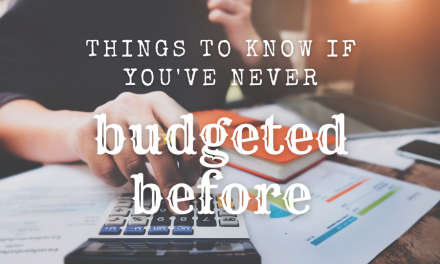Making a household budget, especially a zero-based budget, is hard with so many responsibilities, especially if the amount of money you have left at the end of the month is insufficient for your expectations. Taking control of household finances is essential because the only way to accomplish this is to control them.
You have complete control over all of your personal finances when you adopt a zero-based budget (ZBB) for your family. Every penny can be allocated to achieve the goals that matter most to you.
Why Is Budgeting Important For A Family
Setting up a family budget can help you allocate your funds effectively. This helps you to plan for unforeseen expenses like car repairs or roadside maintenance, as well as prevents you from accidentally overspending.
An effective budget allows you to manage your money, which allows you to pay your bills, buy food, and cover other household expenses.
What Does Zero-Based Budgeting Mean?
A zero-based budget or popularly known as ZBB is calculated by subtracting your expenses from your income and the balance should be zero. It means you still have to find a way to use the leftover income if you have more income than expenses.
You can invest the leftover money or can simply add it to your savings account, at the end you need to have zero amount in hand and so you can start with the zero base for the next month again.
How Can I Set Up a Zero-Based Budget for My Family?
When you have decided to create your family budget with this method, work together as a team. Sit with your partner and build a budget that is feasible for both of you whether you have a little or big family set-up. You might take a little longer to do a zero-based budget for your family or home if you haven’t done one before.
Here are some simple steps to create a ZBB aka Zero-Based Budget:
1. Analyse Your Monthly Income
Make a list of your monthly income. Try to add each source of income in this report. Besides regular paycheques, you may earn income from a small business, side hustles, residual income or any other source. Your budget should include a breakdown of every single penny you earn.
2. Analyse Your Monthly Expenses
You should write down every expense in advance of the new month. Additionally, it should include rent, food, TV, telephone service, and other bills.
3. Make A List Of Your Seasonal Expenditures
You need to think ahead of the current month while creating a zero-based budget. If you prefer making an annual plan or even a monthly plan with keeping your seasonal expenses in mind, you would have to consider all your seasonal expenses, including Christmas and annual holiday costs to the budget.
4. Deduct Your Income From Expenses
The core step of this method is to deduct your income from your expenses or vice versa and get the balance amount as ZERO. Hence, if your income is exceeding your overall expenses, you need to allocate the balance to the other categories like saving for a dream house or for a family holiday, etc.
This way you will tally the income and expenses precisely. And when the balance is ZERO, you are through with your zero-based budgeting practice.





